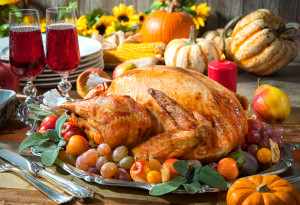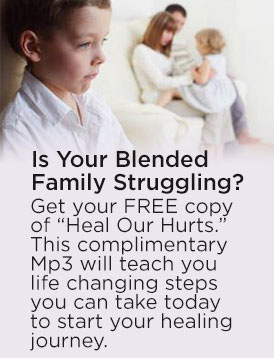As the air turns crisp and the time changes this month, we head into the Holiday season. A time of gatherings and cheer, but also excess! The holidays of winter often bring to mind the image of a full table—and a full stomach. We gather with friends and family and feast merrily on pies and potatoes, turkey and ham and all of the fixings that many of us dearly enjoy.
There is another side to that pretty picture, however.
What if our extra consumption of calories during the winter is fueled not by good cheer and companionship, but by anxiety? And, further, what if it’s not the gathering of loved ones that we most look forward to, but the food that we can’t get out of our minds?
Also, while we may welcome gatherings with friends and family, they do bring with them extra stress and preparation. Add to the mix the anxiety caused by a sputtering economy, and many of us might find ourselves reaching for “comfort” food.
An anxiety-provoked behavior, such as overeating, is an attempt to cope with that anxiety, but as with most such behaviors, it can become a problem itself. Overeating can become a compulsion and lead to health issues such as diabetes and obesity.
This is not to say that you should reflexively turn down that second piece of pumpkin pie, but if you were dreaming of that pie for days, and if, in fact, you care more about that pie than the people around you, then you may have a problem that needs attention.
According to Overeaters Anonymous, here are a few other common markers of compulsive eating:
1. Do you eat when you’re not hungry?
2. Do you go on eating binges for no apparent reason?
3. Do you have feelings of guilt and remorse after overeating?
4. Do you look forward with pleasure and anticipation to the time when you can eat alone?
5. Is your weight affecting the way you live your life?
6. Do you resent others telling you to “use a little willpower” to stop overeating?
7. Despite evidence to the contrary, have you continued to assert that you can diet “on your own” whenever you wish?
8. Do you eat to escape from worries or trouble?
9. Does your eating behavior make you or others unhappy?
If you think that you might be overeating compulsively, it is possible to recover. Help is available through the 12-Step programs Overeaters Anonymous and Food Addicts Anonymous, as well as the staff members of The Center for Family Unity. We can help you say yes to self-care and no to anxiety provoked behavior.
With the help and support of others, you can uncover the reasons behind your compulsive eating, find other strategies for coping with anxiety and get on a food program that can sustain and, even, restore your health.
While you may still have those dreams about that second piece of pumpkin pie, you can also live a happy, healthy and fulfilling life without it.
Call today 619-884-0601









